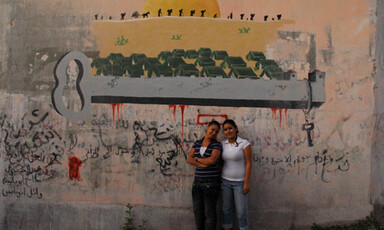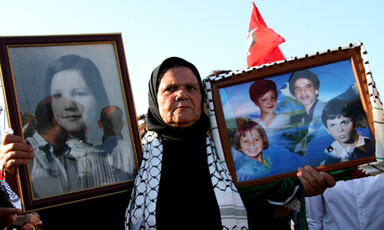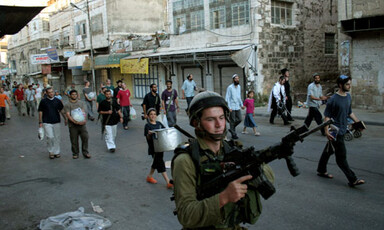
Turning our tongues: Journals from Dheisheh
16 September 2007
“Palestinian girls have a lot of power,” said 17-year-old Haneen Owdeh on a hot summer day in the Dheisheh refugee camp near the West Bank city of Bethlehem. She then added, “but they don’t know how to use it. They need someone to point them to ways on how to use it, to show them what to do.” Haneen Owdeh and her friends, 18 young Palestinian women in total aged 16-19, form a grassroots girls’ art collective in the Dheisheh camp, where over 10,000 refugees live on one-and-a-half square kilometers of land. Dina Awad writes from Dheisheh. Read more about Turning our tongues: Journals from Dheisheh








